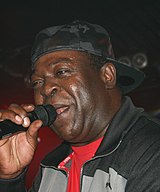The Creolization in Caribbean Music - Intro
This blog will focus on the creolization found in Caribbean music.
Also known as syncretism, creolization as defined by the book Tour de Force is the blending of musical (and other cultural) traditions. A blending of the European and African melodious components, creolization has heavily influenced the creation of a large spectrum of musical forms in the Caribbean. The process of creolization started from the ingenuity and creativeness of the African slaves and their ability to transform and personalize the European practices that were taught to them, whether that be music, speech patterns, dancing, or other forms which then became the building block in defining each individual Caribbean society.
Dancehall, also known as dub or ragga, is an example of creolization in Caribbean music. Considered as the direct predecessor of rap music and a sparse version of reggae music, it was brought about during the late 1970s, dancehall has become one of Jamaica's two most influential forms of music. Developed from the African diaspora, dancehall is one of the freestyle forms of music created and creolized from its African roots by the creativeness of slave descendants. Dancehall is primarily about movement, hence the word "dance" found in its name and the large hall or street areas where the sound systems would be set up, the deep bass tones, dubs, and remixing of sounds that seek to connect you to the music. Dancehall music focuses on the deejay, who "toasts," or raps, over a prerecorded rhythm (riddim) which consists of bass guitar and drums, the deejay partially speaks, and sings to create the unique sound known as dancehall.
John Taylor, (aka) Chaka Demus, and Everton Bonner (aka) Pliers were one of the most successful dancehall duo artists from Jamaica.
Photos taken from: https://en.wikipedia.org/wiki/Chaka_Demus_%26_Pliers
An example of one of Chaka Demus' most popular songs is, Murder she wrote:
Photos taken from: https://en.wikipedia.org/wiki/Haitian_Vodou




Comments
Post a Comment